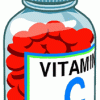Search Results
Showing results 201 to 220 of 459
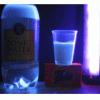
Glow Up
Source Institutions
In this activity, learners explore chemiluminescence and fluorescence. Learners examine 3 different solutions in regular light, in the dark with added bleach solution, and under a black light.
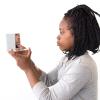
Corner Reflector
Source Institutions
In this optics/mathematics activity, learners use two hinged mirrors to create a kaleidoscope that shows multiple images of an object.
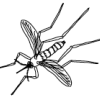
Parasite Sleuth
Source Institutions
In this activity (on pages 26-33), learners play parasitologists, solving several "mysteries" about people who got sick from various parasites. In teams of four, each member solves one mystery.
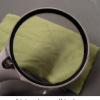
Stuck on You: Adhesion
Source Institutions
Learners explore water adhesion and learn about why water molecules are more strongly attracted to some substances than others.
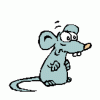
Whatta Web
Source Institutions
In this activity, learners play a game to simulate the food chain.
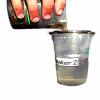
All Mixed Up!
Source Institutions
In this activity, learners separate a mixture of pebbles, salt crystals, and wood pieces. They add water and pour the mixture through a strainer.

Water Cycle in a Bag
Source Institutions
In this activity, learners create a biosphere in a baggie.
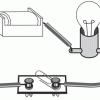
Control the Flow
Source Institutions
In this activity about electricity, learners build and test a paper clip switch to turn on a light bulb.
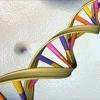
DNA Extraction from Cheek Cells
Source Institutions
DNA is the thread of life. Encoded in its genetic sequence is the information that makes each of us unique.

Uplifting Force: Buoyancy & Density
Source Institutions
In this investigation, learners explore the force known as buoyancy by placing various objects into water and observing how they behave (for example, which sink more quickly, which float, how much wat
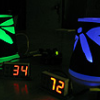
Social Fireflies: Pico "Firefly" Communication
Source Institutions
Make two firefly lanterns, then program them to blink to one another and change colors.
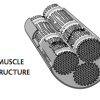
Muscle Fibers
Source Institutions
In this activity about human anatomy (page 20 of PDF), learners investigate the structure of muscles by comparing yarn and cooked meat.
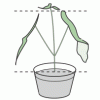
Do Plants Need Light?
Source Institutions
In this food science activity, learners conduct an experiment that demonstrates the importance of light to plants.
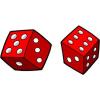
Probability: Chances Are
Source Institutions
In this math lesson, learners identify the likelihood of an event by using a walk-on probability scale.
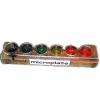
Forwards and Backwards
Source Institutions
In this activity, learners explore acids and bases by preparing six solutions that combine vinegar and ammonia, ranging from acid (all vinegar) to base (all ammonia).
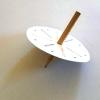
Make A Spinning Top
Source Institutions
In this activity, learners design and build a toy top out of simple, everyday materials and have the option to use the toy as an artistic tool.
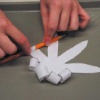
Moving On Up: Capillary Action II
Source Institutions
Learners explore capillary action in plants (such as plants ability to move water from roots to leaves) in an investigation called Paper Blooms.
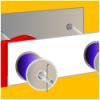
Balloon Car
Source Institutions
Build a car that runs on air. Using household materials, experiment with the power of air to create thrust powerful enough to move a homemade car.
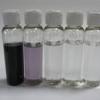
Exploring Size: Scented Solutions
Source Institutions
This is an activity in which learners will find that they can detect differences in concentration better with their nose (smelling) than with their eyes (seeing).

